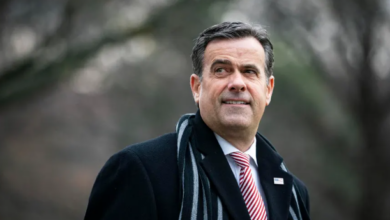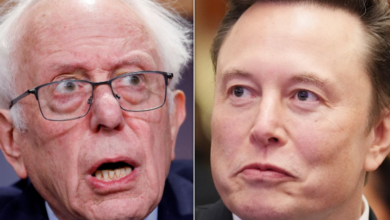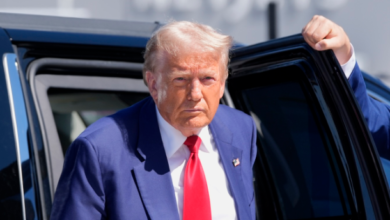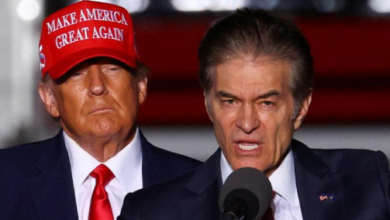Marijuana Reform Is A Political Slam Dunk That Congress Couldn’t Handle


President Joe Biden’s stunning announcement Thursday that he would pardon marijuana offenders and that his administration would reform federal law comes after decades of inaction by Congress despite growing popular support for cannabis legalization.
The House of Representatives earlier this year passed a bill to legalize marijuana but the measure stalled in the Senate amid opposition from Republicans and even some Democrats, such as Sens. Jon Tester (D-Mont.), Joe Manchin (D-W.Va.) and Diane Feinstein (D-Calif.).
It’s hard to imagine what it would have taken for Congress to ever act on its own to legalize marijuana unless Democrats somehow won a Senate supermajority.
Marijuana reform advocates had instead been rooting for lawmakers to adopt a modest change that would allow marijuana businesses that are legal under state laws to access federally-insured banking services.
The federal Controlled Substances Act since the 1970s has put “marihuana” in the same category as the most dangerous drugs, ones that the government considers ripe for abuse with no possible medicinal use.
Congress could have amended the law but didn’t bother, even as cannabis has become widely used for treating pain, nausea and other health issues.
The president can’t unilaterally change the Controlled Substances Act. Still, the law allows the administration to change marijuana’s status through a formal rule-making process with the Department of Health and Human Services and the Department of Justice. On Thursday, Biden said he would ask HHS secretary Xavier Becerra and Attorney General Merrick Garland to initiate that process.
“Federal law currently classifies marijuana in Schedule I of the Controlled Substances Act, the classification meant for the most dangerous substances,” Biden said in a statement. “This is the same schedule as for heroin and LSD, and even higher than the classification of fentanyl and methamphetamine – the drugs that are driving our overdose epidemic.”
Marijuana advocates applauded the announcement but also sounded a note of caution and said Congress should still change the law itself.
“The president has the power to pardon people at the federal level,” Paul Armentano, deputy director of the National Organization for the Reform of Marijuana Laws, told HuffPost. “He does not have the power to change the law.”
Armentano said Thursday’s announcement came as a surprise. He’s concerned that the rule-making process could result in marijuana remaining illegal at the federal level under a less strict “schedule” of the Controlled Substances Act.
“That power has never been used by the attorney general, and it’s unclear if the attorney general has the power to de-schedule as opposed to reschedule,” Armentano said.
Over the past several decades, cities and states have acted independently, changing their laws to legalize marijuana for medicinal and recreational use even as it remained illegal under federal law.
Public opinion on whether marijuana should be legal has dramatically changed over time. In 1980, two-thirds of voters opposed legal pot, but by 2019 two-thirds supported it.
A Pew Research Center survey from April 2021 found only a microscopic number of Americans ― just 8% ― thought marijuana should be illegal in all circumstances. A full three-fifths of Americans thought it should be legal for medical and recreational use, with 31% supporting it being legal only for medical purposes.
Support was high across demographic groups, though Asian Americans, older Americans and conservative Republicans were less likely to support full legalization. Just 32% of Americans over age 75 ― the age group Biden himself falls in – support legal recreational marijuana, compared to 70% of Americans aged 18-29.
The issue also splits GOP voters along age and ideological lines. Just 39% of conservative Republicans support legalization, compared to 60% of moderate or liberal Republicans. The age gap is even more pronounced: 63% of 18-to-29-year-old Republicans support full legalization, compared to just 27% of Republicans over age 65.
The split in reaction was visible among Republican lawmakers. Sen. Tom Cotton (R-Ark.), perhaps the member of Congress most eager to throw people in prison, said Biden’s move was “a desperate attempt to distract from failed leadership” and linked it to crime, a major part of the GOP message ahead of November’s election.
“In the midst of a crime wave and on the brink of a recession, Joe Biden is giving blanket pardons to drug offenders ― many of whom pled down from more serious charges,” he wrote on Twitter.
Rep. Nancy Mace (R-S.C.), who represents a Republican-leaning swing district and has some libertarian leanings, backed Biden’s move.
“Applaud the Administration for their necessary big step forward in bringing justice to so many,” she wrote.
The impact on the forthcoming midterm elections is unclear. While reforming marijuana laws is popular, it typically is not a top issue for voters and is rarely discussed in campaign advertising. A March survey from the Democratic group Data for Progress found 68% of voters support Biden pardoning nonviolent marijuana users.
Democrats are hopeful, however, that the move will appeal to key constituencies whose turnout lags in midterm elections, like Black voters and young people.
“President Biden has delivered huge victories for young people in recent months from historic action on climate legislation to student debt cancellation, and today we celebrate this remarkable move forward on marijuana policy,” said Cristina Tzintzún Ramirez, the president of NextGen America. “One thing is clear: This is the youth agenda in action.”
The move is also a victory for one critical Democratic candidate, Pennsylvania Lt. Gov. John Fetterman.
Fetterman, the party’s candidate in a crucial Pennsylvania Senate race, has long backed marijuana legalization and pressed Biden on the issue for 20 minutes when the president was in Pittsburgh last month.
“This is a BFD and a massive step towards justice,” Fetterman said in a statement, throwing in a shot at his GOP opponent. “I don’t want to hear any bullshit from Dr. Oz or any Republican conflating decriminalizing marijuana with seriously harmful crime. As mayor of Braddock, I worked to combat serious crime. I know what it looks like. And I know that marijuana just doesn’t fit the bill.”
Oz, the celebrity doctor who won the GOP nomination, has opposed marijuana legalization as a candidate, even though he supported changes to marijuana laws when he was a pundit on health care issues.
“There are not enough Pennsylvanians to work in Pennsylvania,” Oz told NewsMax earlier this year. ”So giving them pot so that they stay home is not, I don’t think, an ideal move.”
While major marijuana reform was always unlikely to move through Congress, it was equally unlikely that Biden would wind up the president to try to effectively legalize marijuana and extend selected amnesty to Americans harmed by the War on Drugs. That’s because Biden was one of the nation’s biggest proponents of the Drug War in his four decades in the Senate.
Biden came up with the idea of a federal “drug czar” and even coined the phrase in a 1982 New York Times interview. He advocated for a dramatic increase in federal funding to fight the Drug War and “one person to call the shots.” He then worked with the Ronald Reagan administration to enact legislation to create the Office of National Drug Control Policy in the executive branch for the drug czar to lead while pumping billions more into the drug fight.
Biden teamed up with segregationist Sen. Strom Thurmond (R-S.C.) in 1984 to enact a crime control bill that supercharged civil asset forfeiture, allowing law enforcement to seize property from people without ever proving a crime. It has since become a widespread practice by police departments to seize property from people who are never charged with a crime and resell it to finance their budgets. Biden and Thurmond teamed up again in 1986 to enact the crack-cocaine sentencing disparity, which charged crimes involving crack, who were predominantly Black, at 100 times of those charged with crimes involving powder cocaine, who were predominantly white.
On the same day that President George H.W. Bush announced his drug war plans in a nationally televised address where he held up a plastic bag filled with crack he claimed dealers sold right in front of the White House (it was a setup), Biden responded by saying Bush’s drug policy was not punitive enough. He demanded harsher penalties for drug dealers, including the death penalty, and that the federal government “hold every drug user accountable.”
In the 1990s, Biden led the enactment of the Violent Crime Control and Law Enforcement Act of 1994, which significantly increased funding for prisons, including private prisons, and imposed stricter sentences for drug crimes.
Biden also pushed through the RAVE Act in 2003, which expanded the “crack-house” law to include raves and other electronic music parties. The law made it harder for those running the events to save the lives of people suffering adverse reactions to drugs by discouraging party promoters from providing medical assistance, cool-down rooms, drug test kits or even free water to party-goers. At least one study found the law increased the danger of drug use at these events.
Despite this history, Biden could now be the first president to truly begin dismantling the War on Drugs. Just as only Richard Nixon, who became famous as a red-baiting anti-communist, could go to China, so too, only Biden, a chief architect of the drug war, could legalize marijuana.
And Biden’s skepticism of marijuana did not end in the early 2000s. During his 2020 presidential campaign, even as he supported expunging marijuana convictions, he also mused about the downwind negative effects of legalization.
“The truth of the matter is, there’s not nearly been enough evidence that has been acquired as to whether or not it is a gateway drug,” Biden said at a town hall in Las Vegas in November 2019.
[ad_2]
Source link





